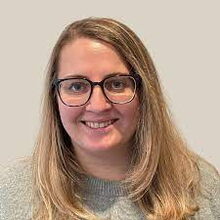Being a scientist, not just a job
Debby Van Riel, Carolien van de Sandt, Jenna Guthmiller
Do not miss the opportunity to listen to this enthusiastic and insightful conversation between Debby van Riel, Associate Professor, Department of Viroscience, Erasmus MC, The Netherlands, Carolien van de Sandt, Senior Research Fellow, Department of Microbiology and Immunology at the Peter Doherty Institute, Australia, and Jenna Guthmiller Assistant Professor at the Department of Immunology and Microbiology from University of Colorado Anschutz Medical Campus, US, and explore the joys and sorrows of embarking on a scientific career.

Nationality: Dutch
Position: Associate Professor, Department of Viroscience, Erasmus MC, The Netherlands
Research Fields: Pathogenesis of respiratory virus infections; Neurological complications; Systemic Inflammation; Influenza A viruses; SARS-CoV-2; Enterovirus D-68;
Short description:
Debby van Riel is an Associate Professor at the Department of Viroscience, Erasmus MC, The Netherlands. After obtaining her MSc at the John Moores University in the UK, she continued her PhD studying the cell tropism of influenza viruses, which she defended in 2010. Since then her research focuses on the pathogenesis of extra-respiratory complications of respiratory virus infections, such as influenza A viruses (seasonal, pandemic and zoonotic influenza viruses), Enterovirus-D68, and SARS-CoV-2. These studies have revealed important new insights into the mechanism of systemic virus dissemination, routes of virus invasion into the central nervous system, systemic inflammatory responses, and the development of central nervous system complications. Her work has been published in leading scientific journals including Science, Lancet, New England Journal of Medicine, Nature Materials and Trends in Neurosciences and she received multiple prestigious personal grants (a.o. Veni, Vidi, Aspasia, EUR fellowship, Erasmus MC fellowships) and prizes (ESWI award, Beijerinck Premium).

Dr Carolien van de Sandt is a Senior Research Fellow in the Department of Microbiology and Immunology at the Peter Doherty Institute, University of Melbourne (UoM). Her principal area of expertise is in viral and aging immunology.
Carolien completed her PhD in 2016 at the Erasmus University in Rotterdam (Netherlands) where she investigated the longevity, cross-reactivity and immune evasion strategies of influenza-specific CD8 + T- cells, followed by two years of postdoctoral research in the laboratory of Profs Rimmelzwaan and Osterhaus.
In 2018, she was awarded the prestigious European Marie Sklodowska-Curie Action (MSCA) Fellowship and the University of Melbourne’s McKenzie Fellowship to join the Kedzierska laboratory, where she leads the Aging Immunity Research Program which aims to unravel the mechanisms that underly gain- and-loss- of CD8 + T-cell function across human lifespan.
During the pandemic Carolien temporarily relocated to the Netherlands as part of her MSCA fellowship (2020-2021) where she led her own research team at Sanquin Research studying SARS-CoV-2 immunity in healthy and autoimmune patients. In 2022 she was awarded the ARC-DECRA fellowship to continue her Aging Immunity and T-cell Development Research at the University of Melbourne.
Carolien has >50 publications including in leading scientific journals like Nature Medicine, Immunity, Nature Immunology and Nature Communications. The importance of her work has been recognized by 16 Awards including the Viruses Early Career Investigator Award.

Jenna Guthmiller earned bachelor’s degrees in Biology, Biotechnology, and Microbiology from South Dakota State University in 2013. She earned a PhD in Microbiology and Immunology under the mentorship of Dr. Noah Butler at the University of Oklahoma Health Sciences Center in 2017. She completed her postdoctoral training at the University of Chicago with Dr. Patrick Wilson.
The Guthmiller lab is interested in understanding how broadly protective humoral immunity against influenza viruses develops and can be harnessed by vaccination. We are also interested in understanding the co-evolution of influenza viruses and the humoral immune response.
- The adaptive immune system does not respond to all parts of an antigen evenly, a phenomenon known as immunodominance. In the context of influenza, the B cell response is preferentially induced against the variable epitopes of the hemagglutinin (HA) domain rather than more conserved epitopes of the HA stalk domain. We are investigating the factors that regulate immunodominance and developing tools to shift immunodominance to the HA stalk domain.
- The breadth and specificity of the humoral immune response against influenza viruses is shaped by past influenza virus exposure. We are investigating how past exposures and exposure routes shape the development of broadly neutralizing antibodies.
- Antigenic drift of influenza virus HA is driven to evade host antibody responses. We are dissecting how 1) antibodies against distinct epitopes shape viral evolution and 2) and how viral evolution shapes infectivity and pathogenesis.




